README
npmFrog
A nice npmjs.org-like web interface for JFrog Artifactory
To share code in your company or team between different projects and developers, you can use a private npm registry like Verdaccio or JFrog's Artifactory (which is often used for Maven dependency management in the Java Environment). The latter lacks a good UI for web developers, so npmFrog is here to present you the self-hosted packages of your team in a more familiar and discoverable way.
👐 It's free and open source. :)
Core Features
The homepage: an overview list of your company's packages.
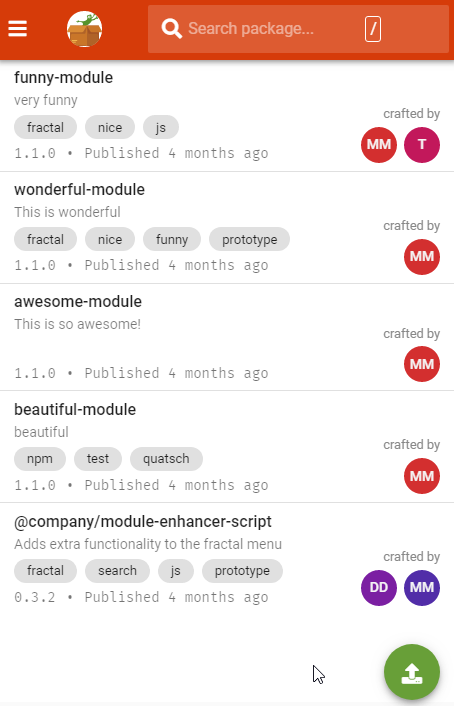
The awesome package search: lookup tags, crafters and packages.
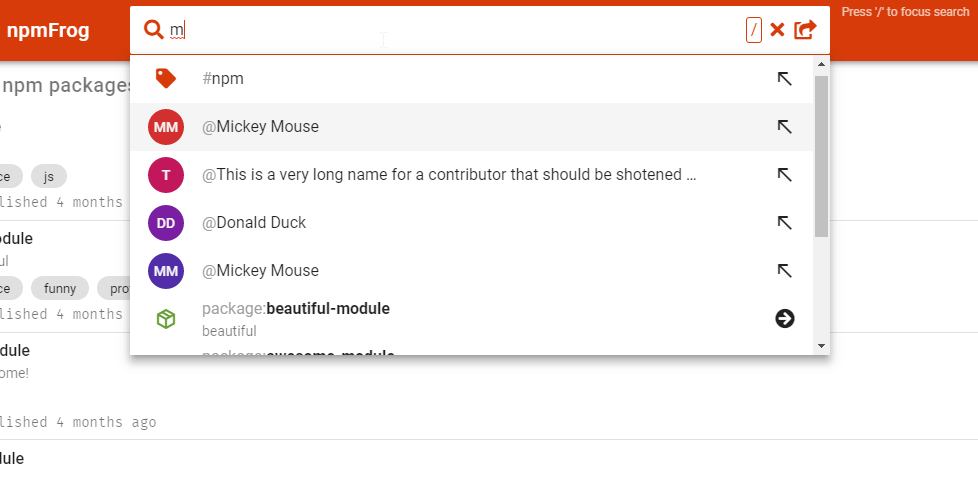
Every package has a detail page to view a lot of useful meta information. Even the remote-cache packages.
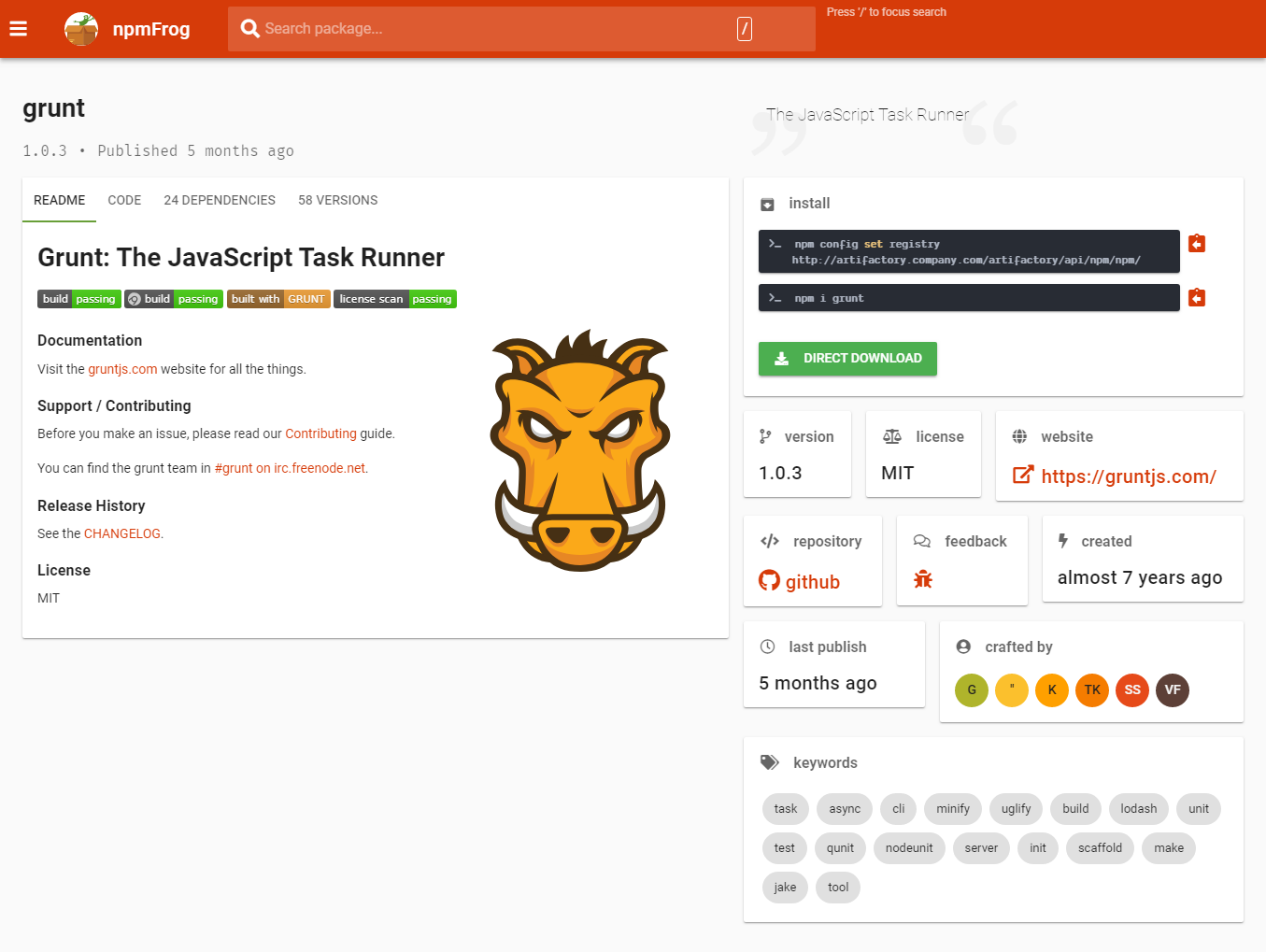
Get details about the people who crafted the package to contact them or to search for other packages by the same author.
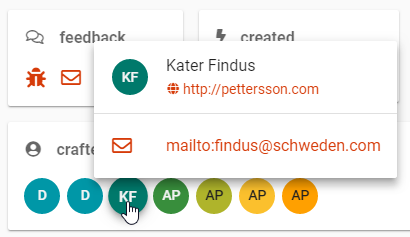
Get an overview of all npm scripts in the
package.json.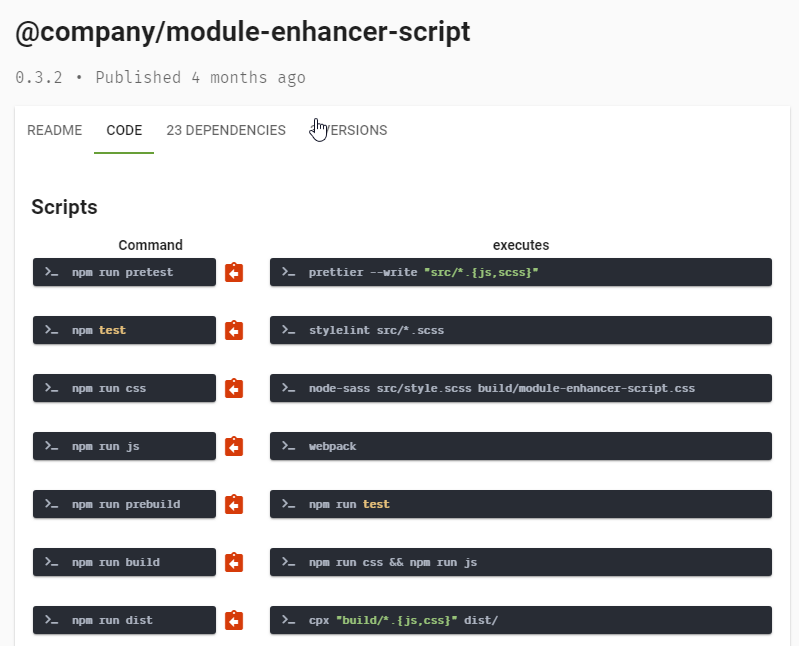
Inspect files that are contained in the package and view or download its code.
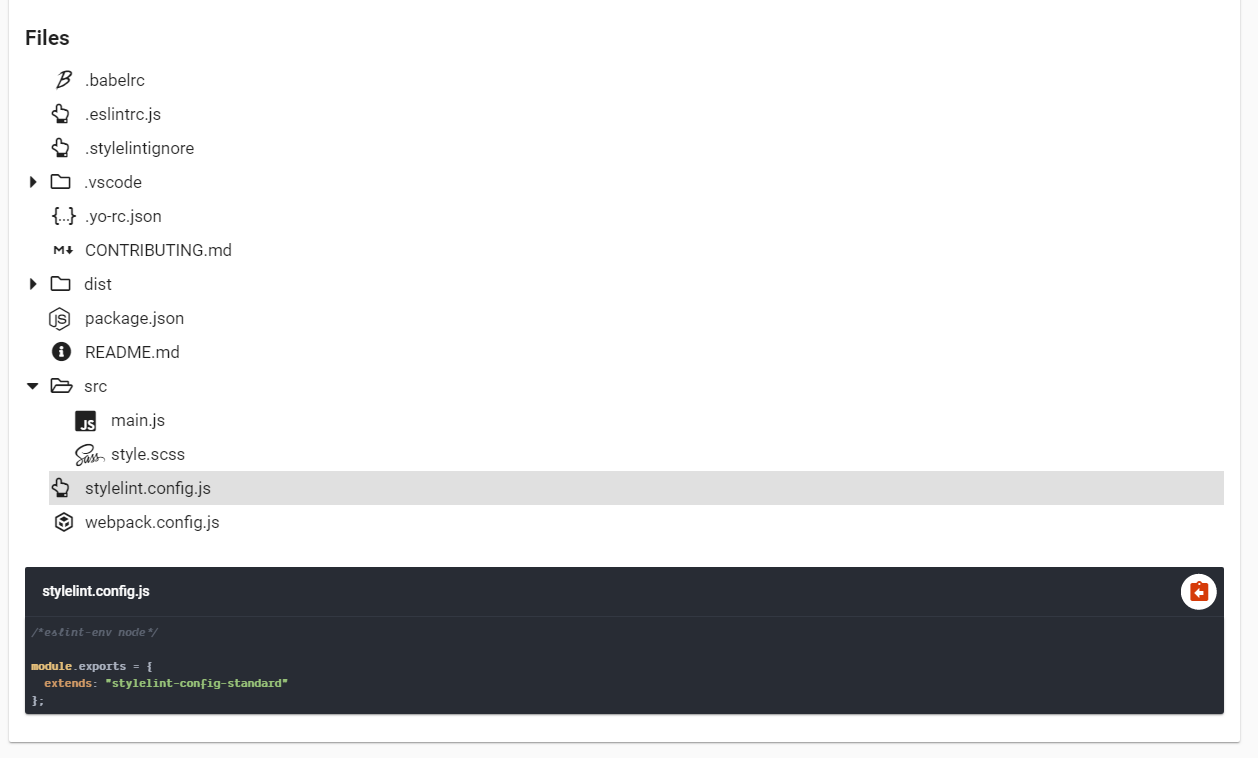
Prerequisites
- Node.js >= 8.x
- JFrog Artifactory is running somewhere in your company's network
Installation
npm i -g npmfrog
Usage
Start
npmfrog
Browse to npmFrog instance http://localhost:8000.
Stop
npmfrog stop
Show logs
npmfrog logs
Show status
npmfrog status
Configuration
At the first startup, npmFrog will create a configuration file in your home directory under ~/.npmfrog/config.json. Please fill this file with your artifactory properties.
If you want to add additional text in the /howto section, you can create a howto.md file in the ~/.npmfrog directory with some additional markdown content.
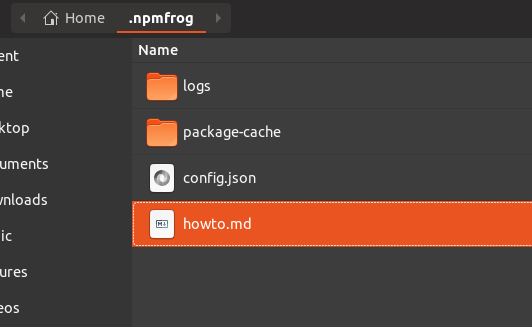
If you want to hide the default publishing guide under /howto, set howto.default in the config.json file to false.
"howto": {
"default": false
}
Development
Run the development task with real back-end data:
npm run dev
With a local environment and dummy data (no internet connection needed):
npm start
To see the logs, run
npm run logs
Stop all running background processes:
npm stop
See the status of background processes:
npm run ps